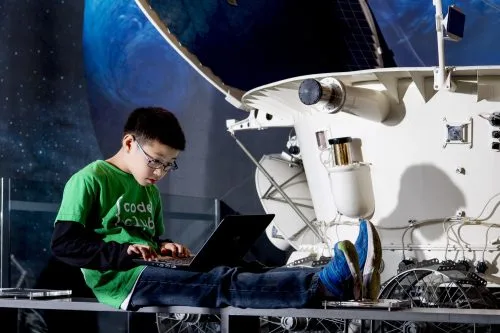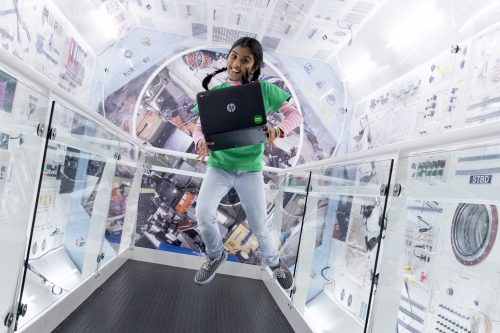Schlagwort: Moonhack
-

Get ready for Moonhack 2024: Projects on climate change
Reading Time: 3 minutesMoonhack is a free, international coding challenge for young people run online every year by Code Club Australia, powered by our partner the Telstra Foundation. The yearly challenge is open to young people worldwide, and in 2023, over 44,500 young people registered to take part. Moonhack 2024 runs from 14 to 31…
-

Get ready for Moonhack 2023: Bringing space down to Earth
Reading Time: 3 minutesMoonhack is a free global, online coding challenge by our partner Code Club Australia, powered by Telstra Foundation. It runs once a year for young learners worldwide. In 2022, almost 44,000 young people from 63 countries registered to take part. This year, Moonhack will happen from 10 to 26 October, to coincide…
-

Take part in Moonhack 2022: Community, culture, coding
Reading Time: 3 minutesIn 2016, Code Club Australia launched the Moonhack online coding event and broke the world record for the most children coding in one day. Then in 2017 they broke the record again. By now, more than 150,000 young learners from 70 countries have participated in Moonhack. Moonhack inspires young people to celebrate…
-

Moonhack 2018: reaching for the stars!
Reading Time: 3 minutesLast year, Code Club Australia set a new world record during their Moonhack event for the most young people coding within 24 hours. This year, they’re hoping to get 50000 kids involved — here’s how you can take part in this interstellar record attempt! Celebrating the Apollo 11 moon landing Nearly 50 years…



